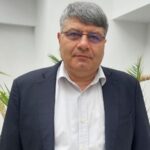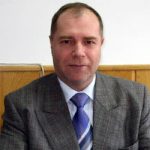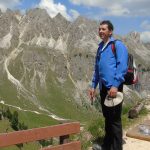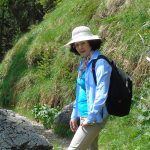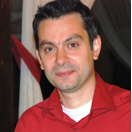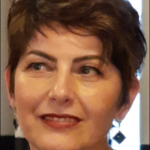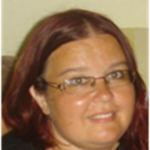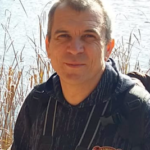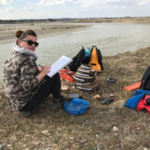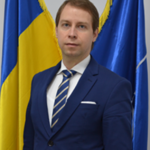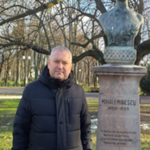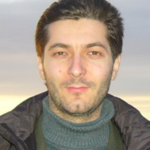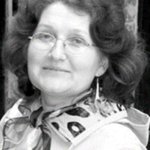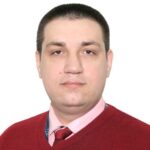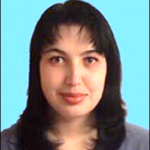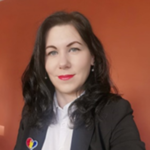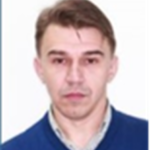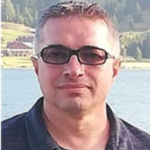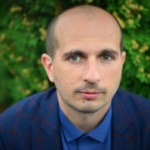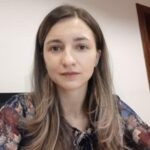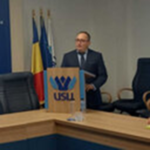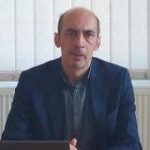The GeA Applied Geography Research Center was accredited by the National Council of Scientific Research in Higher Education (CNCSIS) in 2005, bringing together researchers in the fields of physical geography and human geography from the “Ştefan cel Mare” University of Suceava and the Environmental Protection Agency, Suceava. Since its inception, the research center has brought together scientific personalities from the academic community (Prof. dr. Maria Rădoane – first Director of GeA, Prof. dr. Nicolae Rădoane, Prof. dr. Brânduș Costică, Prof. dr. Catană Constantin, Assoc. Prof. dr. Josep Ioan) and young researchers, providing a framework for scientific research activities and training of human resources in the field of Earth Sciences.
Currently, the Center supports its activity with teaching and research staff from the “Ștefan cel Mare” University of Suceava, teaching staff and researchers from other universities in the country and abroad, voluntarily affiliated with the research activity of the GeA Center, and doctoral students in the field of Geography within the Doctoral School of Applied Sciences and Engineering at the “Ștefan cel Mare” University of Suceava. Any teaching staff, researcher, student, master’s or doctoral student of the “Ştefan cel Mare” University of Suceava in the field of Geography or related fields (Environmental Science, Applied Sciences) and also from other partner universities and research centers can be a member of GeA. The GeA Center belongs to the Department of Geography, and the governing body is the Scientific Council, which is formed by the director (Associate Professor Dr. Dumitru Mihăilă), a head of the research team (Lecturer, Dr. Francisca Chiriloaei) and a scientific secretary (Assistant Dr. Petruț-Ionel Bistricean). GeA’s activity is carried out in collaboration with that of the Department of Geography. GeA is established as an academic subunit without legal personality for the purpose of carrying out high-performance scientific research in the field of Geography. Georeview is the scientific journal supported by the Department of Geography of USV and GeA. The GeA headquarters are within the “Ștefan cel Mare” University of Suceava, Faculty of History, Geography and Social Sciences, Department of Geography, Universității street, no. 13, E building, II floor, room E 216. The GeA research center was established and operates for an indefinite period. The scientific results of the research as well as the physical objects acquired or produced during the execution of contracts financed from public funds belong to the Center, unless otherwise provided by the contract. The financial support of the center is ensured by the “Ștefan cel Mare” University of Suceava, by the Department of Geography and from the Center’s own income. The budget and material assets of the GeA Center are managed by the center’s management.
GeA is financed through:
i) income from its own activities (research contracts, contracts with the socio-economic environment, consultancy, technical expertise, organization of scientific events, summer schools, specialization courses etc.;
ii) donations, financing and sponsorships made by individuals and legal entities, Romanian or foreign;
iii) donations of material goods received from individuals and legal entities, Romanian or foreign. Financial resources will be allocated, in compliance with the legislation in force, to achieve the objectives set out in the statute.
Purpose and necessity of establishment.
The research promoted in this center focuses on theoretical issues and practical applications regarding: natural and anthropogenic hazards, environmental geomorphology, geographical landscape dynamics, topoclimatology, natural resources, mountain landscapes, human impact on the geographical environment, GIS applications, geovisualization, regional geography, spatial organization and territorial planning, dynamic and applied geomorphology, tourism evaluation of natural and economic potential, human and economic geography. The research results are applied in the administrative management of degraded lands, in the protection works of rivers and lakes, in ecological reconstructions for sustainable land use, in complex studies of regional geography, spatial organization and planning, in the evaluations of balneoclimatic potential of some resorts, areas or tourist axes, etc. The studies mainly target the geographical area that includes Suceava County and neighboring counties, the North-East Region of Romania, Moldova and the geographical space between the Carpathians and the Dniester in extenso. The database of the center is confidential and for internal use only for research purposes. The provisions of the legislation in force amend or supplement the provisions stated above by law. The statute, if GeA changes its object of activity or headquarters, may be amended.
Asserted objectives
Objective 1. Creating a collaborative research framework in which established, young or novice researchers can channel their joint efforts to submit fundamental or applied research projects, which will attract funding from various sources for the field of Geography.
Objective 2. Developing the material base for research in the field of Geography at the “Ștefan cel Mare” University of Suceava and intensively using the existing one in research activity.
Objective 3. Organizing conferences, symposia, workshops, book launches.
Objective 4. Supporting teaching staff, doctoral and postdoctoral researchers in carrying out their own research projects, increasing the professional prestige of all those who work in research, within the GeA Center. As long as financial sustainability is ensured, from the funds obtained from research, the center aims to financially support the research activity of young researchers through a series of scholarships.
Objective 5. Accessing a higher level of geographical research at USV by carrying out and publishing as many studies and articles as possible in top international journals.
Objective 6. Supporting the Georeview journal through valuable research in order to increase its attractiveness and ranking.
Objective 7. Carrying out studies and research projects aimed at the socio-economic environment and transforming the Center into a nodal point for providing scientific services to various entities, solving geographical and environmental problems that they face, in order to ensure the sustainability of their economic and social development.
The human resources of the The Research Center of Applied Geography (GeA) are composed of teaching staff / researchers from the Department of Geography at the “Ștefan cel Mare” University of Suceava (USV) and from other partner institutions. The Research Center of Applied Geography (GeA) does not have permanent salaried staff. Depending on the income attracted through contracts, research programs or direct services provided to third parties (individuals and legal entities) and in the event of obtaining budgeted funding sources from the USV management, the staff structure may be composed of research assistants or researchers. The research staff is composed of full members – teaching staff and PhD / Master’s / Geography students of USV, as well as associated members – external collaborators (teaching staff and researchers). The improvement of GeA members is carried out permanently, through participation in national and international scientific events, through exchanges of experience with other colleagues from the country and abroad, through mobility programs, by consulting a cutting-edge specialized bibliography and publishing valuable articles in well-rated national and international journals.
1. Teaching and research staff from the “Ștefan cel Mare” University of Suceava
Mihăilă Dumitru
Assoc. prof. dr. hab.
Research directions / areas of expertise
- Applied climatology
- Weather and climate risk
- Biometeorology, balneoclimatology
- Processing, modeling and analysis of meteorological databases
- Environmental analyses
Efros Vasile
Prof. univ. dr.
Research directions / areas of expertise
- Human geography
- Tourism geography
Chiriță Viorel
Assoc. prof. dr.
Research directions / areas of expertise
- Spatial planning and development
- Dynamics of geographical landscapes
- Geographic risks and hazards
- Geography of cultural landscapes
- Geographical regionalization
Popescu Liviu-Gheorghe
Assoc. prof. dr. eng.
Research directions / areas of expertise
- Microfacies of carbonate rocks
- Paleontological and mineralogical analyses
- Environmental impact studies
- Tourism exploitation of geological and geomorphological potential
- Environmental geology
Popescu Daniela-Alexandra
Assoc. prof. dr. eng.
Research directions / areas of expertise
- Microfacies of carbonate rocks
- Paleontological and mineralogical analyses
- Environmental impact studies
- Tourism exploitation of geological and geomorphological potential
- Environmental geology
Cristea Alexandru-Ionuț
Assoc. prof. dr.
Research directions / areas of expertise
- Geographic information systems
- Digital cartography
- Historical environmental changes
- Fluvial geomorphology
Saghin Despina
Lecturer. dr.
Research directions / areas of expertise
- Human geography
- Social geography
- Rural tourism
- Regional tourism
- Toponomastics
Lupchian Maria-Magdalena
Lecturer. dr.
Research directions / areas of expertise
- Population geography
- Urban and rural geography
- Cultural tourism
- Cultural geography
Budui Vasile
Lecturer. dr.
Research directions / areas of expertise
- Pedology and soil erosion modeling
- Biogeography and applied ecology
- Soil evolution in archaeological sites
- Land use management
- Global environmental changes
Cheia George
Lecturer. dr.
Research directions / areas of expertise
- Human geography
- Tourism
- International tourism
- Romanian touristic heritage
- Geography of Continents
Chiriloaei Francesca
Lecturer. dr.
Research directions / areas of expertise
- Historical and millennial dynamics of riverbeds
- Braided riverbeds
- The impact of riparian vegetation on riverbeds
- Geographic risk and hazard assessment
Bistricean Petruț-Ionel
Assistant. dr.
Research directions / areas of expertise
- Meteorology and Climatology
- Urban Climatology
- Bioclimatology and Balneoclimatology
- Geographic and Satellite Information Systems
- GIS mapping and analysis
2. Teaching staff and researchers from other universities in the country and abroad, voluntarily affiliated in the research activity at the GeA Center
Piticar Adrian
Assoc. prof. PhD.
Research directions / areas of expertise
- Climatology
- Climate change
- General meteorology
- Aeronautical meteorology
Vera Potopová
Doc. Dr. Mgr.
Research directions / areas of expertise
- Climatology
- Agrometeorology
- Crop Science
- Agroecology
- Geoscience
Puțuntică Anatolie
Assoc. prof. dr.
Research directions / areas of expertise
- Climate change
- Meteorology-climatology
- Geography and Environmental Protection
- Environmental monitoring
- Natural hazards
Lozovanu Dorin
Assoc. prof. dr.
Research directions / areas of expertise
- Population Geography
- Ethnogeography
- Historical geography
- Toponomastics
- Cartography
- Geography of settlements
- Political geography
- Museology
- Ethnology
- Medical geography
- Transport geography
Matei Daniela
Scientific researcher II
Research directions / areas of expertise
- Rural tourism, agritourism
- Non-agricultural activities in rural areas
- Urban and rural gardens
- Economic and social resilience of rural mountain areas with mining activity
- Peri-urban communities
Domenco Rodion
Lecturer dr.
Research directions / areas of expertise
- Meteorology
- Climatology and climate risks
- Climate variability and change
Vitalie Mamot
Assoc. prof. dr.
Research directions / areas of expertise
- Human geography
- Transport geography
- Geographic and Satellite Information Systems
- GIS mapping and analysis
- Geoscience
3. PhD students and doctors in the field of geonomic sciences from the doctoral field of Geography within the Doctoral School of Applied Sciences and Engineering at the “Ștefan cel Mare” University of Suceava or other higher education and research institutions
Nistor Alina
PhD student, teacher 1st Degree
Research directions / areas of expertise
- Air pollution
- Environmental Geography
- Climatology
- Radioactive pollution (with radon)
- Noise pollution
Boiciuc Carmen
PhD student
Research directions / areas of expertise
- writing and implementing projects financed from European/national/international funds
- very good English language skills
- balneoclimatic tourism
- outdoor tourism
Mihalache Andrei
PhD student
Research directions / areas of expertise
- Climate Risks
- Rainfall deficit/surplus
- Analysis of thermal inversions
- Climate change
- Identification, assessment, prioritization and mapping of climate risks
Adam Ciprian-Ionuţ
PhD student
Research directions / areas of expertise
- Studying the climatogenic, topoclimatogenic and microclimatogenic factors of the Oroftiana – Stânca-Costești valley sector;
- The particularities of the climatic elements and phenomena that define the climate matrix in the Prut valley sector between Oroftiana and Stânca-Costești;
- The particularities of the meteorological elements and phenomena that define the matrices of topoclimates and microclimates in the Prut valley sector between Oroftiana and Stânca-Costești.
Timish Oleksandr
PhD student
Research directions / areas of expertise
- The role of Transnistria in the geopolitical balance of the Black Sea region
- The role of Transnistria as a buffer zone between the Russian Federation and the Euro-Atlantic space
Nistor Bogdan
PhD, teacher 1st Degree
Research directions / areas of expertise
- Climatology
- Environmental Geography
- Air pollution
- Radioactive pollution (with radon)
- Noise pollution
Horodnic Vasilică-Dănuț
PhD
Research directions / areas of expertise
- Thematic mapping of natural and anthropogenic environmental components based on remote sensing images and historical cartographic supports
- Spatial and statistical analysis of geographical landscape dynamics
- Quantifying the anthropogenic impact on natural and socio-economic systems
- Assessing the territory for suitability for various socio-economic functions
- Implementing Google Earth Engine in accessing, processing and downloading geospatial data
Andrei Liliana Gina
PhD in geography
Research directions / areas of expertise
- Analysis of the anthropogenic impact on various components of the environment
- Environmental assessment and monitoring
- Environmental policies and legislation
- Sustainable solutions and environmental management strategies
- Monitoring environmental changes
Prisăcariu Alin
PhD, teacher 1st Degree
Research directions / areas of expertise
- Climatology
- Climate change
- Climate risks and hazards
Roșu Constantin
PhD in geography, teacher 1st Degree
Research directions / areas of expertise
- Balneoclimatology
- Geographic risks
- Air ionization
- Local climate zones
- The bioclimate of the salt mines
Diacon Liliana Daniela
PhD in Geography, teacher 1st Degree
Research directions / areas of expertise
- Rural Tourism and Sustainable Development
Țiculeanu-Ciurlică Mihaela-Nicoleta
PhD, teacher 1st Degree
Research directions / areas of expertise
- Biology
- Ecology
- Environmental Geography
- Biometeorology
Through GeA, young geographical researchers of the Doctoral School were supported, with 24 doctoral theses in the field of Geonomic Sciences being completed after 2011. Through GeA, several research projects were carried out that brought good visibility to geographical research in Suceava.
The infrastructure that serves The Research Center of Applied Geography (GeA) is based on the Geology-Geomorphology, Climatology and Hydrology, Pedology, Cartography – GIS and Regional Geography Laboratories within the Department of Geography, “Ștefan cel Mare” University of Suceava. Part of the equipment is posted on the EERTIS platform – https://eertis.eu/erlb-2300-000j-7367. Most laboratories are equipped with PC units, video projectors and Smart TVs. When moving equipment and support materials in the field, we can use the Renault Captur car, purchased through the research project PN-II-RU-TE-2014-4-2900 (2015-2017) “Field studies in orthotidal potamology”, funded by UEFISCDI, http://atlas.usv.ro/www/orthotidal-potamology/. The Center’s equipment also includes: laptops, tablets, GPS, mobile weather stations, fixed weather stations – over 40 in number, located in different places in the geographical terrain of the North-Eastern Region of Romania and in the northern half of the Republic of Moldova, portable thermohygrometers and anemometers, which are used in climatic, agroclimatic, bioclimatic, topoclimatic and microclimatic research. Monitoring the therapeutic properties of the air in various tourist resorts or localities with natural healing and treatment factors can be carried out using 5 PC Connectable Highly Accurate Air Ion Counter Tester COM-3200PRO II. Through the devices owned, atmospheric parameters that can cause discomfort or even pathologies at different stages will be monitored: chemical air pollution with different compounds (Air Particle Counter with Multiple Gas Detector), noise (sound level meters datalogger), radioactivity of environmental components in different places (Professional digital Α alpha, Β beta, gamma Γ and X ray radiation scanner meter Geiger Counter and Radona Expert+), the intensity of electromagnetic fields in different rooms and natural or artificial sites (electromagnetic fields measuring device PCE EM-29). Representative thermal images from the field can be taken using the TESTO 872s thermal imaging camera. To determine the temperature of the soil, of the spring waters that can be used therapeutically, digital thermometers can be used during the two determination campaigns. The quality of water from springs, Prut, wells / lakes will be determined using the HQ 4200 Multi/ISE multiparameter probe, the InoLab WTW conductivity meter and two Aqua Troll running water parameter monitoring systems.
Our laboratory contains equipment for cartographic determinations/informatic systems; ArcGIS 10.8 (Desktop, PRO and online); AGISOFT; DJPHANTOME drone; print devices; professional scanners, GPS GARMIN MAP 60 CSX / Receptor GPS Magellan Mobil Mapper CX, with accessories: Soft Mobile Mapping / Plotter design 1050C Plus, A10 / Monitor Samsung plasma TV 42 PS42Q91H; High resolution scanner Epson11000 XL Professional; Facilities for fieldwork researches: topographic measurements, total station Leica with accessories; photo-camera CANON EF 70-300MM f/4-5.6 USM; Livingstone / Endelman /Riverside corers etc.
Figure 1. Images of equipment used in the research activity of the The Research Center of Applied Geography (GeA)
All of this was built on a sustained activity for over 20 years of geographical specialists who have worked or are currently carrying out their research activity within the GeA Center.
The teaching staff who have carried out research activity over time have led or been integrated as members in projects such as: i) Project 609 Type 1P-CD CEEX (2005-2008), “Management and ecological security of natural resources in the Prut border basin” (MARESEP), project manager, Prof dr. Maria Rădoane, ii) Project 754, Type 1P-CD CEEX (2006-2008), “Advanced technologies for monitoring and management of natural resource exploitation with a high degree of vulnerability to natural disasters” (TAMMER), project manager, Prof. dr. Maria Rădoane, iii) Project 743, Type 1P-CD CEEX (2006-2008), “Ecological rehabilitation and sustainable management of areas with degraded land due to deep erosion and/or landslides in Moldova” (MARAVAL), project manager, Prof. dr. Maria Rădoane, iv) Project 747, C.J. Suceava (2008), “Map of risks and hazards on the territory of Suceava County”, project manager, Prof. dr. Costică Brânduș, v) PC type project carried out in 2008-2009 “Agro-forestry strategies for the valorization and conservation of medicinal plant biodiversity in the context of sustainable rural development in the Bistrița Mountain Valley” (MED-AGROSILV) – contractor INCDSB Bucharest/CCB “Stejarul” Piatra Neamț, Partner 3 USV_ project manager, Prof. dr. Maria Rădoane, vi) Project BECO-2011-69-U-56115FT106 (2011-2013) ,,L’émigration féminine hautement qualifiae dans ,le secteur de santé roumain et bulgare vers la France: enjeux, défis et perspectives futures”, coordinated by Ms. Lecturer dr. Despina Vasilcu, vii) international research project with code number EEA-JRP-RO-NO – 2013-1-0204 ,,Forest response to climate change predicted from multicentury climate proxy-records in the Carpathian region” financed by the EEA financial mechanism, research in priority sectors – director, dr. Cătălin Roibu, viii) Project “National Competence Centre and solutions for the development of Climate Neutral and Smart Cities” (NetZeRoCities) from May 2023, https://netzerocities.upb.ro/ – director, prof. dr. Mihai Dimian, or in the projects that can be accessed through the link: https://fig.usv.ro/proiecte/.
Under the coordination of the leading doctoral teaching staff, with the support of GeA, within the doctoral field of Geography, a number of 23 doctoral theses were defended after 2011 as follows:
| Name and surname | Coordinator | The title of the doctoral thesis | Year | Decree |
| TĂNASĂ D. Ion | Prof. dr. Costică BRÂNDUŞ | Climate of the Suceava Plateau – risk phenomena, implications for sustainable development | 2011 | 6468/07.12.2011 |
| CRISTEA Ş.
Ionuţ-Alexandru |
Prof. dr. Costică BRÂNDUŞ | Putna Valley from Vrancea region – geomorphological study | 2011 | 3639/27.03.2012 |
| CARP S. Liviu | Prof. dr. Costică BRÂNDUŞ | The Bucovina Suhard Massif – Physical-geographical study | 2013 | 4360/MD/30.07.2013 |
| CHEIA V. Gheorghe | Prof. dr. Vasile EFROS | Tourist concentration areas in Suceava County: tourism potential and evolution | 2013 | 5581/MD/03.12.2013 |
| OBREJA I.
Florin Gheorghe |
Prof. dr. Nicolae RĂDOANE | Study of alluvium transport in the Siret river basin | 2013 | 5581/MD/03.12.2013 |
| OPREA N. Dinu Iulian (OPREA – GANCEVICI) | Prof. dr. Costică BRÂNDUŞ | Suceava Valley. Geomorphological study | 2014 | 634/11.11.2014 |
| FLORESCU V. Gabriela Georgeta | Prof. dr. Nicolae RĂDOANE Prof. dr. Vasile EFROS |
Paleolimnological investigations in the northern Romanian Carpathians | 2015 | 4643/30.07.2015 |
| CHIRILĂ V. Elena (ACATRINEI) | Prof. dr. Vasile EFROS Prof. dr. Nicolae RĂDOANE |
The role of relief in the evolution of the population and human settlements in the Huşi Depression | 2015 | 3209/23.02.2016 |
| HALIUC V. Aritina | Prof. dr. Maria RĂDOANE | Lake sediments in paleoclimatic reconstructions: Case study: Lake Ighiel and Lake Haemelsee | 2016 | 4954/17.08.2016 |
| BISTRICEAN P.
Petruț-Ionel |
Prof. dr. Vasile EFROS | The balneoclimatic potential of the tourist resorts from Moldova | 2018 | 4193/27.07.2018 |
| LIVARCIUC (PĂSTRU) E. Florentina | Prof. dr. Maria RĂDOANE | Sediment budgets in small river basins. Applications in the Gemenea River Basin | 2018 | 4193/27.07.2018 |
| ROBU I. Delia-Elena | Prof. dr. Maria RĂDOANE | Evolution of riverbeds in the Someș Low Plain | 2018 | 3693/19.03.2019 |
| GĂLBĂU I. Ionela | Prof. dr. Vasile EFROS | Geodemographic peculiarities of the Roma population in northern Moldova | 2019 | 5345/25.11.2019 |
| BĂDĂLUŢĂ C. Carmen-Andreea | Prof. dr. Maria RĂDOANE | Reconstruction of air temperature over the last 1000 years based on stable isotope analysis from ice deposits in caves in the Apuseni Mountains, Romania | 2019 | 5644/30.12.2019 |
| APOPEI V. Lidia-Maria (PAPAGHIUC) | Assoc.prof. dr. habil. Dumitru MIHĂILĂ | “Climatic and topoclimatic peculiarities of the Cotnar territory and its surroundings” | 2023 | 3782/13.02.2024 |
| DIACON V. Liliana-Daniela (HÎRȘIU) | Prof. dr. Vasile EFROS | “Rural tourism and sustainable development in the mountainous area of the North-East development region of Romania” | 2023 | 3811/15.02.2024 |
| ȘPAC N. Luminița-Mirela (LĂZĂRESCU) | Prof. dr. Vasile EFROS | “Study of the quality of living in the municipality of Rădăuți in the context of urban restructuring, after 1990” | 2023 | 3811/15.02.2024 |
| HORODNIC I. Vasilică-Dănuț | Prof. dr. Vasile EFROS | “Land use and landscape modification in the Suceava River basin” | 2023 | 3811/15.02.2024 |
| PRISĂCARIU I. Alin | Assoc.prof. dr. habil. Dumitru MIHĂILĂ | “Climatic, topoclimatic and microclimatic study in the metropolitan area of Suceava” | 2023 | 4582/04.06.2024 |
| PETRAȘ A. Ancuța-Ramona | Assoc.prof. dr. habil. Marcel MÎNDRESCU | “The use of carbonized plant fragments for the paleo-reconstruction of vegetation fires in northern Transylvania during the Holocene” | 2024 | 3002/08.01.2025 |
| LAZURCA V. Liliana-Gina (ANDREI) | Prof. dr. Vasile EFROS | “Anthropogenic impact on the environment in Suceava County” | 2024 | 3002/08.01.2025 |
| ȚICULEANU M. Mihaela-Nicoleta (ȚICULEANU-CIURLICĂ) | Assoc.prof. dr. habil. Dumitru MIHĂILĂ | “Water and air as geographical factors conditioning the population of the Suceava metropolitan area” | 2024 | In evaluation |
| ROȘU N. Constantin | Assoc.prof. dr. habil. Dumitru MIHĂILĂ | “Evaluation of the balneoclimatic potential and geographical risks produced in the tourist resorts of Moldova located in the sedative-indifferent bioclimate level” | 2024 | 3388/24.02.2025 |
The GeA Center has numerous connections with the scientific journal Georeview (https://georeview.usv.ro), with the International Symposium on Environmental Quality and Land Use (https://fig.usv.ro/simpozionul-international-calitatea-mediului-si-utilizarea-terenurilor/), with the International Conference on Atmosphere and Hydrosphere (https://fig.usv.ro/conferinta-stiintifica-internationala-atmosfera-si-hidrosfera-2024/) and with the International Symposium of Geography Students (https://fig.usv.ro/simpozionul-international-al-studentilor-geografi/), supporting the aforementioned journal and all these events over time.
The members of the GeA Center have numerous collaborative relationships with professors and researchers from other Romanian research centers or from outside Romania (Republic of Moldova, Ukraine, Czech Republic, Greece, Turkey, France, Germany, Great Britain). Many of GeA’s members have conducted reviews for prestigious national and international scientific journals, being on the staff of numerous renowned scientific events.
The Research Center of Applied Geography (GeA)
Monitoring, consulting and scientific research services on request on a contract basis
We mention that the area of expertise of the members of the GeA Center includes several directions of approach, of which we mention a few.
Evaluation of the economic potential of environmental resources (subsoil, soil, climatic – wind and solar energy, hydrographic, vegetation and fauna, agricultural, agro-forestry, tourism, etc.) available to a certain territorial entity with the provision of sustainable solutions for their use in the future.
Assessment of physical and economic-geographic risks (geological-seismic, geomorphological / pedological – surface and linear erosion of soil and superficial rock deposits, torrentiality and landslides, meteorological and climatic – waves of cold, heat, drought, torrentiality, violent winds, wildfires, etc., hydrological – small waters, large waters, floods, inundations, ice accumulations and other freezing / thawing phenomena on rivers, biogeographic – the risk of the proliferation of certain diseases, attacks by certain groups of insects, economic and social: the risk of economic stagnation or decline, population aging, divorce, crime, unemployment, economic and social exclusion, depression, increased crime rates, alcohol and drug consumption, etc.).,
Assessment of the quality of environmental factors: air, water, soil in order to find solutions increasing the quality of these components of the human living environment, by reducing pollution.
Evaluation of the characteristics of local microclimates and topoclimates in order to know the urban climate with the aim of efficient management of meteo-climatic resources, problems generated by heat islands and chemical pollution in cities, in the current context of global warming, determinations of thermal efficiency of buildings, local urban planning solutions, determinations of environmental radioactivity in cities, determinations of noise levels, radon levels in homes, electromagnetic pollution in certain premises, indicators regarding the quality of environmental components and quality of life, etc.
All these steps are aimed at finding solutions for the harmonious development in accordance with the principles of sustainable development of human communities. GeA specialists can find viable solutions to solve the problems faced by different human communities.
Consulting, scientific assistance and research services on topics of interest / necessary to be solved for third parties can be materialized through reports accompanied by a relevant statistical, graphic and cartographic part (maps, map collections) and explicit, by finding concrete solutions / measures that meet the most demanding requirements, in accordance with current standards in environmental research and with the legislation in force. The specialists of the GeA Research Center within USV can carry out research projects on geographical and environmental topics upon request, based on a research contract.
Book launch Ostra Commune
Book presentation to the Minister of Environment of the Republic of Moldova
Doctoral theses defended by members of the GEA center
Liviu Apostol book launch
Administration of the network of meteorological stations belonging to GeA USV
Establishment of the network of meteorological stations managed by GeA USV
Field research Aeroionization monitoring Suceava and surroundings
Field research Mobile Transects Meteotracker
Field research Noise monitoring
Field research Radioactivity measurement Crucea
Field research LCZ mapping with drone
Students from Suceava visit their colleagues at the University of Oradea
Studenți suceveni în vizită la colegii lor de la Universitatea din Oradea
Studenți ai specializărilor Geografie și Geografia Turismului, de la Universitatea din Suceava, au vizitat Universitatea din Oradea și câteva atracții turistice ale județului Bihor.
Cei 50 de studenți suceveni s-au aflat luni – 27 mai 2024, în campusul Universității din Oradea, împreună cu profesorii lor coordonatori: conf. univ. dr. Mihăilă Dumitru, asist. univ. dr. Bistricean Petrut Ionel și lect. univ. dr. Francisca Chiriloaei.
„În cadrul aplicațiilor de teren, studenții au putut descoperi și patrimoniul cultural al orașului, participând la un tur ghidat al obiectivelor din centrul istoric al Oradiei. Oaspeții suceveni au fost ghidați pe teren de cadre didactice de la Departamentul de Geografie, Turism și Amenajarea Teritoriului al Universității din Oradea. Grupul a fost cazat la Cabana „Gaudeamus”, din Stâna de Vale, unde studenții au efectuat măsurători meteorologice și au parcurs mai multe trasee turistice, precum cel de la Vârful Poieni”, a precizat lect. univ. dr. Corina Tătar, de la Facultatea de Geografie, Turism și Sport.
Biroul Comunicare
Students from Suceava visit their colleagues at the University of Oradea
Students of the Geography and Tourism Geography majors at the University of Suceava visited the University of Oradea and several tourist attractions in Bihor County.
The 50 students from Suceava were on Monday, May 27, 2024, on the campus of the University of Oradea, together with their coordinating professors: associate professor Dr. Mihăilă Dumitru, assistant professor Dr. Bistricean Petrut Ionel and lecturer Dr. Francisca Chiriloaei.
“During the field applications, the students were also able to discover the city’s cultural heritage, participating in a guided tour of the objectives in the historical center of Oradea. The guests from Suceava were guided on the field by teaching staff from the Department of Geography, Tourism and Territorial Planning of the University of Oradea. The group was accommodated at the “Gaudeamus” Cabin, in Stâna de Vale, where the students took meteorological measurements and walked several tourist routes, such as the one at Vârful Poieni”, stated lect. univ. dr. Corina Tătar, from the Faculty of Geography, Tourism and Sport.
Communication Office
Students visiting GeA laboratories
USV students visiting the Rosiuta CEOltenia quarry
Working visit to the University of Craiova
Vizita de lucru la Universitatea din Craiova
Ieri am primit vizita colegilor de la Universitatea “Ștefan cel Mare” din Suceava, Facultatea de Istorie, Geografie și Științe Sociale, Departamentul de Geografie. Cadrele didactice și studenții din anul I se aflau în practică, descoperind resursele turistice reprezentative din regiunea Oltenia. Aceștia au avut parte de un tur ghidat al Universității din Craiova, dar au admirat și obiectivele turistice din orașul nostru.
Working visit to the University of Craiova
Yesterday we received a visit from colleagues from the “Ștefan cel Mare” University of Suceava, Faculty of History, Geography and Social Sciences, Department of Geography. The teaching staff and first-year students were in practice, discovering the representative tourist resources of the Oltenia region. They had a guided tour of the University of Craiova, but they also admired the tourist attractions in our city.
Our address is:
Applied Geography Research Center (GeA)
Stefan cel Mare University of Suceava,
Faculty of History, Geography and Social Sciences, Department of Geography
University Street, no. 13, 720229, Building E, Floor II, Offices E 214 and Laboratory E 216



